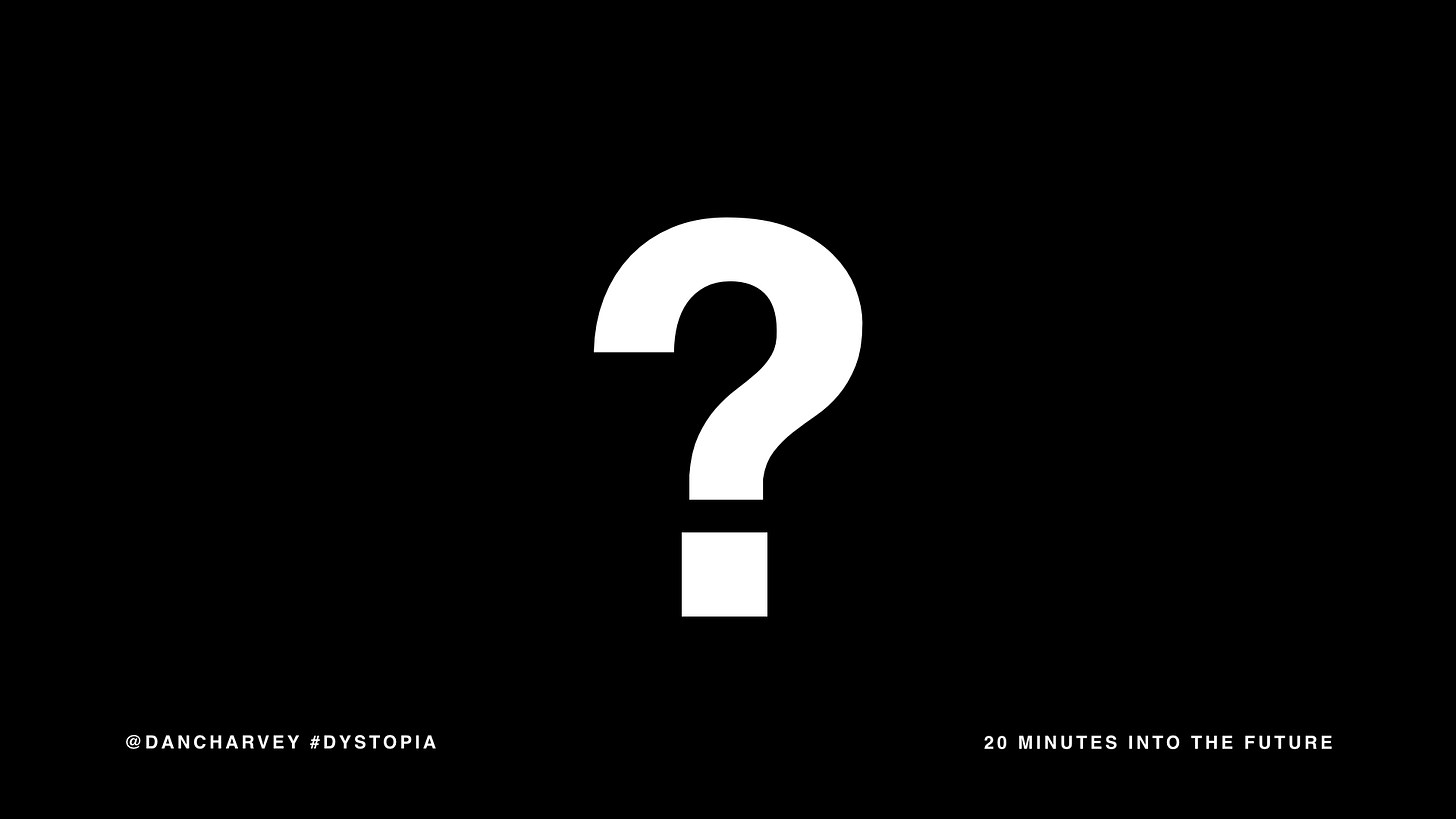How we can fix dystopia

So what can we do as consumers, creators, and a society to fix all this shit? Because we have to fix it. We can’t just unplug and walk away. Walking away doesn’t help solve the problems for those left behind and it shirks our own responsibility in this mess.
As individuals we can modify our relationship with big tech. The Time Well Spent movement recommends several good tactics as a start:
Notifications only from people
Go Grayscale
Tools only home screen
Launch other apps by typing
Get an alarm clock
Go cold turkey
As employees we can take action. Trump and Brexit disasters have turned tech workers into activists. No longer happy to drink the corporate kool-aid of bullshit values & mission statements they are demanding action of their employers. Some recent examples include:
Prop C
Google’s China search engine
Military contracts at Google, Amazon
Stanford students pledging to not work for Salesforce over their border contracts
As a citizenry we can support new policies and regulations that put our human right to privacy above the bottom lines of the corporate surveillance complex. Here we’ve got GDPR (which thankfully will survive in the UK post-Brexit). In the US activists and politicians in Oakland, CA have successfully put in place significant anti-surveillance ordinance. Sen. Ron Wyden’s proposed “Consumer Data Protection Act”, if passed would even jail CEOs for violating consumer privacy.
As designers and technologists we can:
Enforce existing ToS evenly and fairly. No one is above the law and no one should be above ToS either.
More logical definitions of protected groups.
Better algorithms to detect hate speech.
Down rank / shadowban hateful content
As designers and technologists we can leverage and improve existing copyright tools to not just enrich the pockets of entrenched entertainment interests but to squash deepfakes that will endanger our democracies and algorithmically generated mash-ups that traumatise our children. We can also fight fire with fire as AI itself can be very capable at rooting out the current tells that reveal deepfakes. That’s always an arms race though.
There are hopeful signs however: Patricia Georgiou’s team at Jigsaw leverages machine learning and other tools to fight radicalization online. It’s been said Antifa plays pop songs at right-wing marches so they can use copyright infringement policies on the big platforms to take down nationalist content.
As designers & technologists we need to rethink our fundamental interactions. We need to design for kindness. We need new interactions that make it easier to be kind. Small interventions like prompts that emphasise empathy, warn against idealogical bias, undo angry responses, or driven to private conversations rather than public flamewars.
Tobias-Rose Stockwell has explored these ideas recently. It would be nice to see social media platforms like Facebook and Twitter to similarly experiment.
Beyond just designing different interfaces we have to design and build different networks. That starts by challenging lazy assumptions that advertising should be the default or exclusive model for everything. There are other models: from subscriptions to SAAS direct revenue to DTC sales. And some companies like Amazon have multiple business models. It just make good business sense to diversify your revenue streams, metrics and business models accordingly.
We also have to start imagining different futures. For far too long the wrong people have been taking the wrong lessons from dystopian sci-fi stories. We need protopian stories. That’s why the provocations by people like Monika Bielskyte and Nell Watson are so important.
But we’re not going to be able to rethink those fundamental stories, interactions, platforms, or business models if the same people and perspectives are leading the conversation. We’re not going to solve the problems that rich white Californian tech bros have heaped on us all without having more different designers and technologists in the mix. Inclusive design means working with people of diverse backgrounds. Different races, genders, sexual orientations, ethnicities, religious beliefs, ages, ability, neuro-divergence, class, and more. And designing experiences for them all too.
File under: #dystopia #collectiveaction #regulation #designforkindness #inclusion
Next week: Getting married so you’ll get a break from me ranting in your inbox. Expect a return on Tuesday, 8th of Oct.
20 Minutes into the Future is a critical look at how technology is shaping our lives today. And what actions we can take for a better tomorrow. If you found this newsletter worth your while then please sign up for a free subscription.
Daniel Harvey writes 20 Minutes into The Future. He is a product designer and has written for Fast Company, Huffington Post, The Drum, & more. If you're pissed about the current state of tech and want to see us do better then you’ve found a kindred spirit.
You can email him at daniel.harvey@gmail.com or follow him on Twitter @dancharvey.



